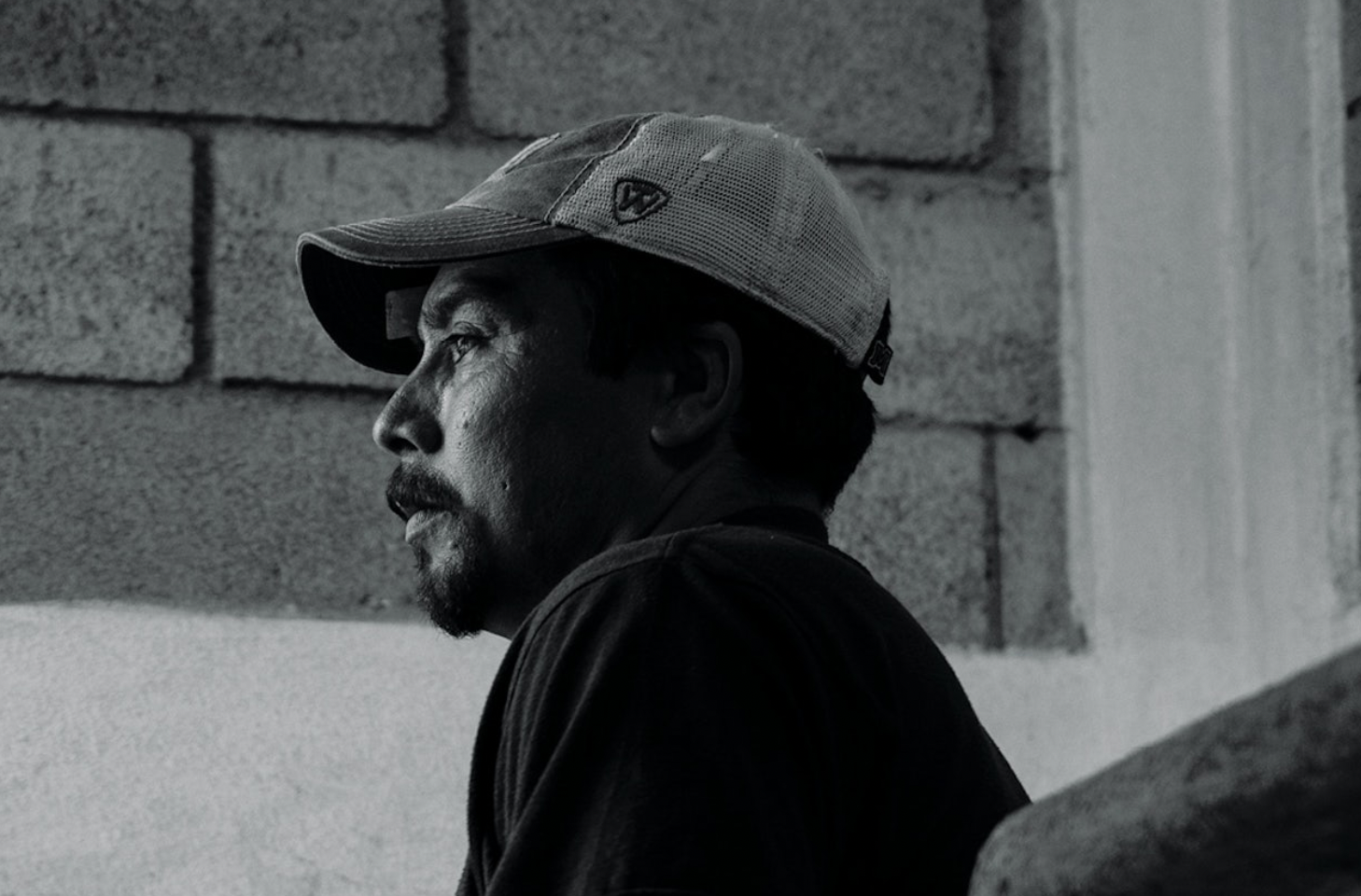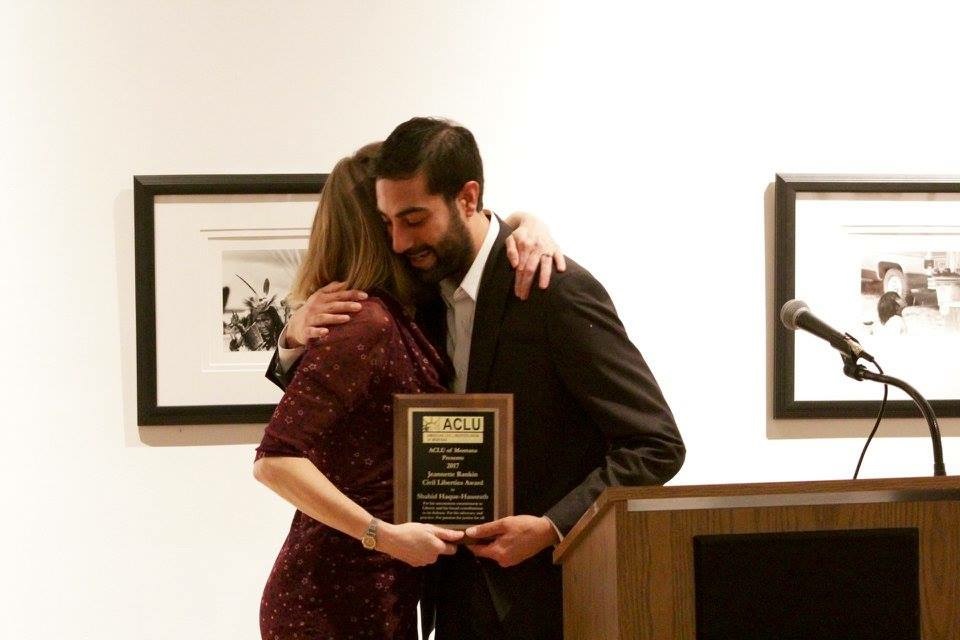End User License and Terms of Use Agreement
This End User License and Terms of Use Agreement (“Agreement“) is a binding agreement between you (“End User” or “you“) and the Border Crossing Law Firm (“Company” or “we”). This Agreement governs your use of the Open Borders application, whether downloaded onto a mobile device or accessed on web (including all related documentation, the “Application“).
The Application is licensed, not sold, to you. The Application is intended for use by persons 18 years of age or older. If you are under 18 years of age, you may not access or use the Application. By clicking the “Agree” button or using the application, you:
- Acknowledge that you have read and understand this agreement;
- Represent that you are 18 years of age or older; and
- Accept this agreement and agree that you are legally bound by its terms.
If you do not agree to these terms, do not use the application and delete it from your mobile device.
Not Legal Advice
Open Borders is a free immigration guide that is intended to serve as a starting point for determining your immigration options. The information in the Application is not legal advice, and does not form an Attorney-Client relationship.
ℹ️ The Application is not a substitute for the advice or representation of an attorney. All of the information provided in this Application is meant to be reviewed and confirmed by an immigration attorney prior to taking any action with the U.S. government to file any applications for relief.
Immigration laws are complex and frequently change. We tried to take into account thousands of possible immigration scenarios, but we make no representation that the information in this guide is perfect. There could be a number of variables in your case that are not fully taken into account in the information provided by this Application. There could also be immigration relief that you qualify for that this Application does not discover.
For this reason, the information presented on or through the Application is made available solely for general information purposes. We do not warrant the accuracy, completeness, or usefulness of this information. Any reliance you place on such information is strictly at your own risk. We disclaim all liability and responsibility arising from any reliance placed on such materials by you or any other visitor to the Application, or by anyone who may be informed of any of its contents.
The Border Crossing Law Firm expressly disclaims all liability in respect to actions taken or not taken based on the content of the Application. The reader should also be aware that prior results described in the Application do not guarantee a similar outcome.
We strongly believe that legal representation is critical in immigration cases, and do not encourage you to file any immigration applications without the assistance of a qualified immigration attorney.
Neither receipt of information presented in the Application Sites nor any e-mail or other electronic communication sent to Border Crossing Law Firm or its lawyers will create an attorney-client relationship. Accordingly, the attorney-client relationship will not begin until you receive a written statement from us that we represent you (an “Attorney-Client Contract”).
ℹ️ Unless you retain the Border Crossing Law Firm through execution of an Attorney-Client Contract, we are not your attorneys, and you may not consider the information provided in our Application to be legal advice.
Border Crossing Law Firm attorneys named in the Application are authorized to practice law in Illinois and Montana, and before any federal administrative tribunal, such as the Executive Office for Immigration review, but may not be authorized to practice law in other state or federal jurisdictions. Attorneys listed on the Sites are not Certified by the Texas Board of Legal Specialization.
Attorney Advertising
The content of the Application should be considered attorney advertising, because it is intended to encourage you to hire us to provide legal services to you.
End-User License Agreement
1. License Grant. Subject to the terms of this Agreement, Company grants you a limited, non-exclusive, and nontransferable license to:
(a) download, install, and use the Application for your personal, non-commercial use on a single mobile device owned or otherwise controlled by you (“Mobile Device”) strictly in accordance with the Application’s documentation; and
(b) access, stream, download, and use on such Mobile Device the Content and Services (as defined in Section 6) made available in or otherwise accessible through the Application, for your personal, non-commercial use, strictly in accordance with this Agreement and the terms applicable to such Content and Services as set forth in Section 6.
2. License Restrictions. You shall not:
(a) copy the Application or any portion thereof, except as expressly permitted by this license;
(b) modify, translate, adapt, or otherwise create derivative works or improvements of the Application;
(c) reverse engineer, disassemble, decompile, decode, or otherwise attempt to derive or gain access to the source code of the Application or any part thereof;
(d) remove, delete, alter, or obscure any trademarks or any copyright, trademark, patent, or other intellectual property or proprietary rights notices from the Application, including any copy thereof;
(e) rent, lease, lend, sell, sublicense, assign, distribute, publish, transfer, or otherwise make available the Application, or any features or functionality of the Application, to any third party for any reason, including by making the Application available on a network where it is capable of being accessed by more than one device at any time.
(f) access data not intended for you, log onto a server or an account that you are not authorized to access, circumvent any security measures, or use any device, software, or routine to interfere in any way with the proper working of the Application or any activity conducted therein (including without limitation distributing viruses, malicious code, malware or any other technologies that may harm the Company, the Application, or a user).
(g) use the Application in any manner to send or post unsolicited messages for promoting and/or advertising of products or services (e.g. spam).
(h) violate or circumvent any applicable laws, regulations or technical measures, security measures or policies, or submit to the Application any false, inaccurate, misleading, deceptive, defamatory, or libelous materials (including without limitation knowingly withholding or failing to disclose information requested by the Application and/or required to be included or discloses on a USCIS form or other government form).
3. Not Legal Advice. The Application is intended to serve as a starting point for determining your immigration options. The information on the Application is not legal advice, and does not form an Attorney-Client relationship. The Application is not a substitute for the advice or representation of an attorney. Immigration laws are complex and frequently change. We tried to take into account hundreds of possible immigration scenarios, but we make no representation that the information in this guide is perfect. There could be a number of variables in your case that are not fully taken into account in the information provided by this guide. There could also be immigration relief that you qualify for that this guide does not discover. All of the information provided on the Application is meant to be reviewed and confirmed by an immigration attorney prior to taking any action with the U.S. government to file any applications for relief. The Border Crossing Law Firm expressly disclaims all liability in respect to actions taken or not taken based on the content of the Application. The reader should also be aware that prior results described on the Application does not guarantee a similar outcome. We strongly believe that legal representation is critical in immigration cases, and do not encourage you to file any immigration applications without the assistance of a qualified immigration attorney. If you decide to retain the Border Crossing Law Firm to represent you, then the terms of that agreement will be specified in a separate Attorney-Client Contract that will be sent to you. Unless you retain the Border Crossing Law Firm, we are not your attorneys, and you may not consider the information on our Application to be legal advice. Neither receipt of information presented on the Application nor any e-mail or other electronic communication sent to Border Crossing Law Firm or its lawyers will create an attorney-client relationship. Accordingly, the attorney-client relationship will not begin until you receive a written statement from us that we represent you (an “Attorney-Client Contract”). The content of the Application should be considered attorney advertising, because it is intended to encourage you to hire us to provide legal services to you.
4. Reservation of Rights. You acknowledge and agree that the Application is provided under license, and not sold, to you. You do not acquire any ownership interest in the Application under this Agreement, or any other rights thereto other than to use the Application in accordance with the license granted, and subject to all terms, conditions, and restrictions, under this Agreement. Company reserves and shall retain its entire right, title, and interest in and to the Application, including all copyrights, trademarks, and other intellectual property rights therein or relating thereto, except as expressly granted to you in this Agreement. Any use of the Application not expressly permitted by these terms is a breach of these terms, and may violate copyright, trademark, and other laws. The Border Crossing Law Firm name, the Open Borders and Border Crossing Law Firm logos, and all related names and logos are trademarks of the Border Crossing Law Firm
5. Collection and Use of Your Information. You acknowledge that when you download, install, or use the Application, Company may use automatic means (including, for example, cookies and web beacons) to collect information about your Mobile Device and about your use of the Application. You also may be required to provide certain information about yourself as a condition to downloading, installing, or using the Application or certain of its features or functionality, and the Application may provide you with opportunities to share information about yourself with others. All information we collect through or in connection with this Application is subject to our Privacy Policy. By downloading, installing, using, and providing information to or through this Application, you consent to all actions taken by us with respect to your information in compliance with the Privacy Policy.
6. Content and Services. The Application may provide you with access to Company’s website located at bordercrossinglaw.com (the “Website”) and products and services accessible thereon, and certain features, functionality, and content accessible on or through the Application may be hosted on the Website (collectively, “Content and Services”). Your access to and use of such Content and Services are governed by Website’s Terms of Use and Privacy Policy, which are incorporated herein by this reference. Your access to and use of such Content and Services may require you to acknowledge your acceptance of such Terms of Use and Privacy Policy and/or to register with the Website, and your failure to do so may restrict you from accessing or using certain of the Application’s features and functionality. Any violation of such Terms of Use will also be deemed a violation of this Agreement.
7. Geographic Restrictions. The Content and Services are based in the state of Montana in the United States and provided for access and use only by persons located in the United States. You acknowledge that you may not be able to access all or some of the Content and Services outside of the United States and that access thereto may not be legal by certain persons or in certain countries. If you access the Content and Services from outside the United States, you are responsible for compliance with local laws.
8. Updates. Company may from time to time in its sole discretion develop and provide Application updates, which may include upgrades, bug fixes, patches, other error corrections, and/or new features (collectively, including related documentation, “Updates”). Updates may also modify or delete in their entirety certain features and functionality. You agree that Company has no obligation to provide any Updates or to continue to provide or enable any particular features or functionality. Based on your Mobile Device settings, when your Mobile Device is connected to the internet either:
(a) the Application will automatically download and install all available Updates; or
(b) you may receive notice of or be prompted to download and install available Updates.
You shall promptly download and install all Updates and acknowledge and agree that the Application or portions thereof may not properly operate should you fail to do so. You further agree that all Updates will be deemed part of the Application and be subject to all terms and conditions of this Agreement.
Additionally, the Company may revise this Agreement from time to time in its sole discretion, and you may therefore be presented with updated terms when accessing the Application. By confirming your agreement to the updated terms and/or continuing to use the Application, you are accepting the updated terms and agreeing to be legally bound to them. If you do not agree to the updated terms, do not use the Application and delete it from your mobile device.
9. Third-Party Materials. The Application may display, include, or make available third-party content (including data, information, applications, and other products, services, and/or materials) or provide links to third-party websites or services, including through third-party advertising (“Third-Party Materials”). You acknowledge and agree that Company is not responsible for Third-Party Materials, including their accuracy, completeness, timeliness, validity, copyright compliance, legality, decency, quality, or any other aspect thereof. Company does not assume and will not have any liability or responsibility to you or any other person or entity for any Third-Party Materials. Third-Party Materials and links thereto are provided solely as a convenience to you, and you access and use them entirely at your own risk and subject to such third parties’ terms and conditions. Links to organizations and governmental agencies are provided as a convenience to our readers. There is no sponsorship between the Company and any of these organizations and agencies. The Company does not endorse and is not responsible for any Third-Party Materials that may be accessed from its website and does not recommend or endorse the use of any third-party service.
10. Term and Termination.
(a) The term of Agreement commences when you acknowledge your acceptance and will continue in effect until terminated by you or Company as set forth in this Section 10.
(b) You may terminate this Agreement by deleting the Application and all copies thereof from your Mobile Device.
(c) Company may terminate this Agreement at any time without notice if it ceases to support the Application, which Company may do in its sole discretion. In addition, this Agreement will terminate immediately and automatically without any notice if you violate any of the terms and conditions of this Agreement.
(d) Upon termination:
(i) all rights granted to you under this Agreement will also terminate; and
(ii) you must cease all use of the Application and delete all copies of the Application from your Mobile Device and account.
(e) Termination will not limit any of Company’s rights or remedies at law or in equity.
11. User Contributions. The Application may contain message boards, chat rooms, forums, bulletin boards, and other interactive features (collectively, “Interactive Services”) that allow users to post, submit, publish, display, or transmit to other users or other persons (hereinafter, “post”) content or materials (collectively, “User Contributions”) on or through the Application. All User Contributions must in their entirety comply with all applicable federal, state, local, and international laws and regulations, and may not be offensive, discriminatory, harassing, or otherwise objectionable. Any User Contribution you post to the Application will be considered non-confidential and non-proprietary. By providing any User Contribution, you grant us and our licensees, successors, and assigns the right to use, reproduce, modify, perform, display, distribute, and otherwise disclose to third parties any such material.
You represent and warrant that you own or control all rights in and to the User Contributions, you have the right to grant the license granted above to us and our licensees, successors, and assigns, and all of your User Contributions do and will comply with these terms. You understand and acknowledge that you are responsible for any User Contributions you submit or contribute, and you have full responsibility for such content, including its legality, reliability, accuracy, and appropriateness. We are not responsible or liable to any third party for the content or accuracy of any User Contributions posted by you or any other user of the Application.
We have the right to:
(a) Remove or refuse to post any User Contributions for any or no reason in our sole discretion
(b) Take any action with respect to any User Contribution that we deem necessary or appropriate in our sole discretion, including if we believe that such User Contribution violates this Agreement, infringes any intellectual property right or other right of any person or entity, or threatens the personal safety of users of the Application or the public.
(c) Disclose your identity or other information about you to any third party who claims that material posted by you violates their rights, including their intellectual property rights or their right to privacy.
(d) Take appropriate legal action, including without limitation, referral to law enforcement, for any illegal or unauthorized use of the Application.
(e) Terminate or suspend your access to all or part of the Application for any reason, including without limitation, any violation of this Agreement.
Without limiting the foregoing, we have the right to cooperate fully with any law enforcement authorities or court order requesting or directing us to disclose the identity or other information of anyone posting any materials on or through the Application. You waive and hold harmless the border crossing law firm from any claims resulting from any action taken by the company during, or taken as a consequence of, investigations by either the company or law enforcement authorities.
12. Disclaimer of Warranties. The Application is provided to end user “As is” and with all faults and defects without warranty of any kind. While company strives to provide accurate information, we cannot and do not guarantee that any information will be up to date or error-free. To the maximum extent permitted under applicable law, company expressly disclaims all warranties, whether express, implied, statutory, or otherwise, with respect to the application, including all implied warranties of merchantability, fitness for a particular purpose, title, and non-infringement, and warranties that may arise out of course of dealing, course of performance, usage, or trade practice. Without limitation to the foregoing, company provides no warranty or undertaking, and makes no representation of any kind that the application will be accurate, reliable, meet your requirements, achieve any intended results, be compatible, or work with any other software, applications, systems, or services, operate without interruption, meet any performance or reliability standards, or be virus-free or error-free, or that any errors or defects can or will be corrected. You use the application at your own risk. This disclaimer constitutes an essential part of this Agreement and you acknowledge that without your agreement to the terms of this section, the company would not have entered into this agreement or provided the application to you. The foregoing does not affect any warranties that cannot be excluded or limited under applicable law, as some jurisdictions do not allow the exclusion of or limitations on implied warranties or the limitations on the applicable statutory rights of a consumer.
13. Limitation of Liability. To the fullest extent permitted by applicable law, in no event will company or its affiliates, or any of its or their respective licensors or service providers, have any liability arising from or related to your use of or inability to use the application or the content and services for:
(a) personal injury, property damage, lost profits, cost of substitute goods or services, loss of data, loss of goodwill, business interruption, computer failure or malfunction, or any other consequential, incidental, indirect, exemplary, special, or punitive damages.
(b) direct damages in amounts that in the aggregate exceed the amount actually paid by you for the application.
The foregoing limitations will apply whether such damages arise out of breach of contract, tort (including negligence), or otherwise and regardless of whether such damages were foreseeable or company was advised of the possibility of such damages.
14. Indemnification. You agree to indemnify, defend, and hold harmless Company and its officers, directors, employees, agents, affiliates, successors, and assigns from and against any and all losses, damages, liabilities, deficiencies, claims, actions, judgments, settlements, interest, awards, penalties, fines, costs, or expenses of whatever kind, including reasonable attorneys’ fees, arising from or relating to your use or misuse of the Application or your breach of this Agreement, including but not limited to the content you submit or make available through this Application. The Company shall have the right to participate in the defense of any such claim, at its own cost. You may not settle or negotiate any claim that results in liability to, or imposes any obligation upon the Company, financial or otherwise, without the written consent of the Company.
15. Export Regulation. The Application may be subject to US export control laws, including the Export Control Reform Act and its associated regulations. You shall not, directly or indirectly, export, re-export, or release the Application to, or make the Application accessible from, any jurisdiction or country to which export, re-export, or release is prohibited by law, rule, or regulation. You shall comply with all applicable federal laws, regulations, and rules, and complete all required undertakings (including obtaining any necessary export license or other governmental approval), prior to exporting, re-exporting, releasing, or otherwise making the Application available outside the US.
16. US Government Rights. The Application is commercial computer software, as such term is defined in 48 C.F.R. §2.101. Accordingly, if you are an agency of the U.S. Government or any contractor therefor, you receive only those rights with respect to the Application as are granted to all other end users under license, in accordance with (a) 48 C.F.R. §227.7201 through 48 C.F.R. §227.7204, with respect to the Department of Defense and their contractors, or (b) 48 C.F.R. §12.212, with respect to all other U.S. Government licensees and their contractors.
17. No Government Affiliation. Neither the Company or the Application is affiliated with the United States Citizenship and Immigration Services (“USCIS”), United States Immigration and Customs Enforcement (“ICE”), United States Customs and Border Protection (“CBP”), the Executive Office of Immigration Review (“EOIR”), the Board of Immigration Appeals (“BIA”), or any other government entity.
18. Copyright Agent. For purposes of the Digital Millennium Copyright Act (” DMCA”), we have designated an agent for notices of claimed infringement:
Shahid Haque, President
Border Crossing Law Firm
618 Highland St. Helena, MT 59601
(406) 594-2004
Shahid@bordercrossinglaw.com
Only DMCA notices should go to the Copyright Agent; any other feedback, comments, requests for technical support, and other communications should be directed to customer service at help@bordercrossinglaw.com.
19. Severability. If any provision of this Agreement is illegal or unenforceable under applicable law, the remainder of the provision will be amended to achieve as closely as possible the effect of the original term and all other provisions of this Agreement will continue in full force and effect.
20. Governing Law. This Agreement is governed by and construed in accordance with the internal laws of the State of Montana without giving effect to any choice or conflict of law provision or rule.
21. Arbitration. Any case, controversy, suit, action, or proceeding arising out of, in connection with, or related to this Agreement or the Application shall be settled by binding arbitration in Montana, or at another location if mutually agreed by the parties. The arbitration shall be conducted on a confidential basis pursuant to the Commercial Arbitration Rules of the American Arbitration Association. The party seeking to initiate arbitration must notify the adverse party in writing of a Demand for Arbitration. If the parties cannot mutually agree on an acceptable arbitrator within twenty days after the adverse party has received the Demand for Arbitration from the initiating party, the parties shall submit a joint-request for arbitration to the American Arbitration Association (” AAA”), and shall allow the AAA to select the arbitrator. Any decision or award as a result of any such arbitration proceeding shall be in writing and shall provide an explanation for all conclusions of law and fact and shall include the assessment of costs, expenses, and reasonable attorneys’ fees. Any such arbitration shall be conducted by a single arbitrator experienced in commercial contract disputes for at least ten years, and shall include a written record of the arbitration hearing. The parties reserve the right to object to any potential arbitrator who is employed by or affiliated with a competing organization or entity thereby resulting in a conflict-of-interest. An award of arbitration may be confirmed in a court of the State of Montana, and in the event of non-compliance with the arbitration ruling, the prevailing party may seek to enforce the arbitration decision in the Montana courts.
22. Entire Agreement. This Agreement constitutes the entire agreement between you and Company with respect to the Application and supersedes all prior or contemporaneous understandings and agreements, whether written or oral, with respect to the Application.
23. Waiver. No failure to exercise, and no delay in exercising, on the part of Company, any right or any power hereunder shall operate as a waiver thereof, nor shall any single or partial exercise of any right or power hereunder preclude further exercise of that or any other right hereunder.


 Account
Account
















